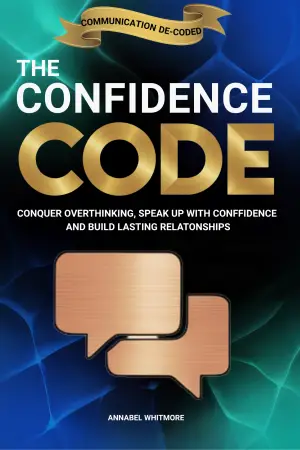Book Review: Toxic Empathy: How Progressives Exploit Christian Compassion by Bethany Stuckey
When I first stumbled upon Toxic Empathy: How Progressives Exploit Christian Compassion by Bethany Stuckey, I was both intrigued and skeptical. The title hinted at a provocative thesis, and as a fellow Christian navigating the complexities of faith and politics, I felt compelled to dive in. However, 170 pages later, I found myself grappling not just with the ideas presented, but with the very essence of the book itself.
Stuckey’s central argument is that “toxic empathy” permeates progressive discourse, stripping away layers of thoughtful inquiry in favor of emotional responses. Immediately, I sensed a disconnect: while she criticizes this form of empathy, her own narrative often appears driven by personal grievances—highlighting online negativity rather than engaging with the substance of multifaceted social issues. This book feels less like a structured critique of political ideologies and more like an amalgamation of selective anecdotes, as if Stuckey is filtering her experiences through a narrow lens.
One of my immediate reactions was skepticism towards Stuckey’s qualifications to dissect such intricate topics as abortion, immigration, LGBTQ+ rights, and systemic racism. Over the course of the book, it seemed she relied heavily on cherry-picked statistics and isolated examples, such as citing a lone Black economist opposed to affirmative action. As I read, it felt frustratingly simplistic to reduce these vast and complicated discussions into blanket statements.
The writing itself had a punchy quality that kept me turning the pages, but it often felt presented with an air of authority that was unwarranted. Stuckey’s shifts in tone—from addressing impactful narratives like that of a mother and daughter crossing the border, to declaring all such migrants “murderers”—caused me to double-take. The discussing of horrific sexual assaults attributed to gender dysphoria, while glossing over numerous scandals within the Southern Baptist Convention, left me searching for a genuine acknowledgment of nuance.
Where I found some common ground with Stuckey was in her critique of online discourse. I couldn’t agree more—much of what plays out on social media often reaches deafening levels of disconnection rather than meaningful dialogue. Yet, her reluctance to engage with the substantial nuance that crowds these conversations feels like an opportunity missed. If Stuckey had focused her critique on the pitfalls of online engagement, her analysis might have resonated more deeply.
Ultimately, this book seems tailored for white Christians looking for justification in their political beliefs, particularly around figures like Donald Trump. If you’re seeking courage and true empathy, I would encourage exploring works that authentically embody faith—books like Tattoos on the Heart by Father Greg Boyle, or No Future Without Forgiveness by Archbishop Desmond Tutu, which illuminate the profound depths of Christian compassion in action.
In conclusion, while Toxic Empathy may be a fitting read for those on a similar ideological journey as Stuckey, I found its potential significantly undercut by an oversimplified approach. Rather than offering profound insights, the book felt self-servingly aimed at alleviating guilt rather than fostering genuine understanding. For me, this reading experience reinforced the importance of exploring perspectives that reflect a true commitment to love, empathy, and the complexities of our shared humanity.
Discover more about Toxic Empathy: How Progressives Exploit Christian Compa… on GoodReads >>






